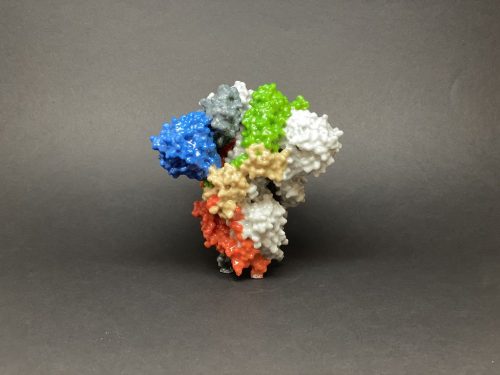Image courtesy of Flickr.
Meet Spike.
Spike is a protein found on the surface of the coronavirus that, in the past few months, has gained attention from Covid-19 immunologists as the primary target for vaccines.
This is because Spike is crucial for infection: it connects the SARS-CoV-2 virus to human cells, opens the cell membrane, and allows in viral genetic material. Stopping Spike through a drug or vaccine-produced-antibody could be promising in stopping the virus from entering cells.
In a study published in Nature, researchers at the National Institute of Allergy and Infectious Diseases in Maryland reported two mRNAs that neutralize Spike and protect against SARS-CoV-2 infection in the lungs and noses of mice. The researchers noticed that other proteins similar to Spike, such as those found in Middle East Respiratory Syndrome, contained a small sequence of amino acids that, if specifically mutated, could render a less pathogenic virus that immune cells could develop antibodies against. After the release of Spike’s amino-acid sequence in February, the researchers induced the same mutation by adding two mRNA sequences in the virus. The researchers found that if they introduced this weaker virus strain in mice, the mice also gained adaptive immune protection against the SARS-CoV-2 virus. These mRNA vaccines present a promising new option for Covid-19 treatment, and one is current in Phase 3 of Clinical Trials.

